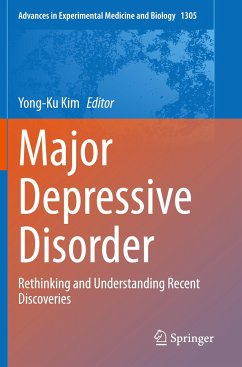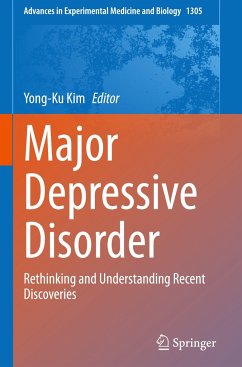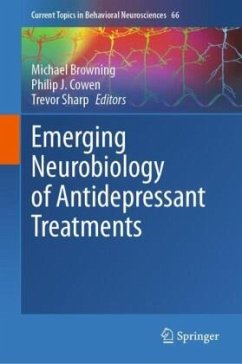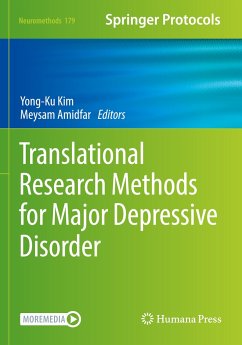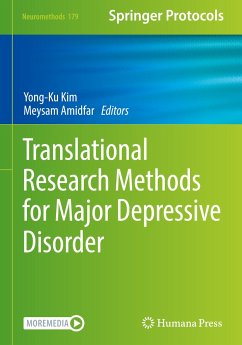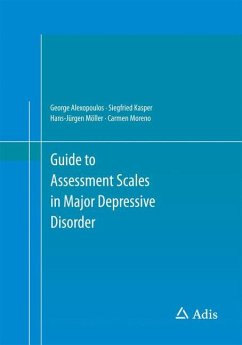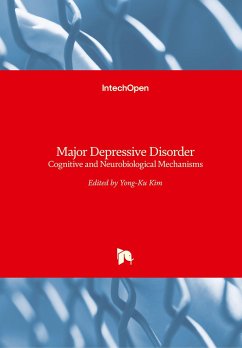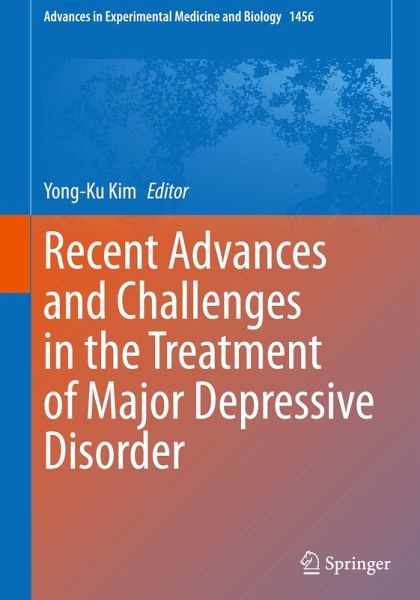
Recent Advances and Challenges in the Treatment of Major Depressive Disorder

PAYBACK Punkte
106 °P sammeln!
This book reviews all aspects of major depressive disorder (MDD), casting light on its neurobiological underpinnings and describing the most recent advances in management. The book is divided into four sections, the first of which discusses MDD from a network science perspective, highlighting the alterations in functional and structural connectivity and presenting insights achieved through resting state functional MRI and the development of neuroimaging-based biomarkers. The second section examines important diagnostic and neurobiological issues, while the third considers the currently availab...
This book reviews all aspects of major depressive disorder (MDD), casting light on its neurobiological underpinnings and describing the most recent advances in management. The book is divided into four sections, the first of which discusses MDD from a network science perspective, highlighting the alterations in functional and structural connectivity and presenting insights achieved through resting state functional MRI and the development of neuroimaging-based biomarkers. The second section examines important diagnostic and neurobiological issues, while the third considers the currently available specific treatments for MDD, including biofeedback, neurofeedback, cognitive behavioral therapy, acceptance and commitment therapy, neuromodulation therapy, psychodynamic therapy, and complementary and alternative medicine. A concluding section is devoted to promising emerging treatments, from novel psychopharmacological therapies through to virtual reality treatment, immunotherapy, biomarker-guided tailored therapy, and more. Written by leading experts from across the world, the book will be an excellent source of information for both researchers and practitioners.





